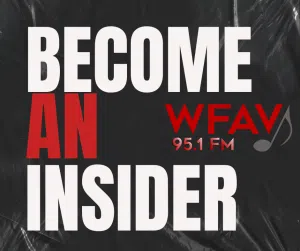In the early ’90s Niche, a Sheffield nightclub, became the destination for twisted spins on UK garage, house and R’n’B. Punters soon started asking their local record stores if they were stocking any ‘Niche tunes’ as the new sound swept across cities in Yorkshire and the Midlands.
Bassline eventually climbed to the top of the UK singles chart towards the end of the ’00s. Though it soon dropped off the radar of the mainstream, bassline’s influence has remained embedded in Northern dance music culture ever since.
Now, a decade on, bassline is going through something of a resurgence – from the old-school re-stylings of Bad Boy Chiller Crew to the meaner-sounding, dubstep-influenced productions of the next gen. Here’s how we got here.
George Morel – ‘Let’s Groove’ (1993)
Taking a relentless, shuffling house beat and pairing it with muffled and melodic bass, this New York classic would go on to hop the Atlantic and shape UK garage. In the early ‘90s, it also became a minor classic among the crate-digging DJs who were laying down the foundations for bassline.
Released by the influential NYC label Strictly Rhythm (also home to Louie Vega and Kenny Dope of Masters At Work, along with Todd Terry) Morel’s track eventually made its way into the speakers of Sheffield’s Niche, a now-legendary dance institution which opened in 1992. According to one of the club’s resident DJs Shaun “Banger” Scott, their constant search for obscure future classics was inspired by the region’s Northern Soul scene. “You would not believe how competitive we were,” he told Red Bull Academy in 2015. “If you played a big tune and it became an anthem that every DJ played, then you’d be known for playing that record first.”
Local DJs would also re-record certain deep cuts, adding bright-sounding, house-inspired vocals and beefing up the basslines. Some of these reworkings became known as ‘B-Line’ tracks thanks to their tough, synthesised bass, while ‘organ’ tracks filled out the lower registers with menacing pulses of sampled Korg M1 organs. Both of these styles of early bassline were blasted out of Niche’s speakers, and soon punters in record shops began requesting the latest ‘Niche tunes’ that they’d heard in the club. At this point this new blend of speed garage, house and R’n’B didn’t have a name, but still – the first roots had been laid down on Sidney Street.
Todd Terry – ‘Something Goin’ On (Loop Da Loop Uptown Mix)’ (1997)
This sort of hidden gem became part of Niche’s appeal – and, according to Scott, one track in particular marked a turning point for the club three years later. A filthy-sounding new remix of the Strictly Rhythm icon Todd Terry by French-British DJ and producer Nik Dresti transformed the house classic completely, loading it up with vicious, pounding bass.
“It was this really dark, bassline-led version of it – not like the kind of thing we’d been playing up until then,” Scott said. “And [the clubbers] went mad, throwing cans and bottles at Mark [Carr, a Niche DJ]. I think that they loved it so much that it sort of hit a nerve. It was almost like punk: if you like it, you spit at it. Mark’s freaking out and Tony and Les [the club’s managers] were like, ‘Oh, you’re not playing that one no more. It’s too much, too aggressive,’ but it did get played again. And at a point you think, ‘This has got something to it, hasn’t it?’”
Jon Buccieri – ‘Running For My Love’ (2002)
By the turn of the millennium, garage – also heavily influenced by NYC house labels like Strictly Rhythm– was going through its own transformation. Splitting from relentless earlier speed garage classics like Double 99’s ‘Ripgroove’, some strands of UK garage, largely based in London, began evolving into grime. Meanwhile, the harsh, four-to-the-floor beats of garage’s speedier counterpart continued to dominate in the Midlands and Yorkshire.
In Sheffield, the city’s Reflex venue noticed that customers kept requesting the warped new strains of bass-heavy garage they’d heard at Niche, and eventually the record store set up Reflective Records to meet the demand. While the label started out reworking dance giants like Armand Van Helden, they soon began pressing records by local producers like Big Ang, Veteran and DJ Booda, who all partied at Niche. Thanks to the label, tracks like ‘Running For My Love’ by Jon Buccieri became Sheffield classics.
A year after ‘Running For My Love’s release, however, the government passed the Anti-Social Behaviour Act and began targeting clubs like Niche with drug raids, strict licensing conditions and closure attempts. Though the police completely failed in their attempts to convict club owners for offences like drug supply with the hugely expensive Operation Repatriation, Niche eventually shut down anyway after a huge police raid. Its owner, the late Steve Baxendale, set up a new home for bassline called Club Vibe a year later, but the city’s pioneering DJs were freed up to play elsewhere. As a result, bassline began to spread rapidly in Leeds, Bradford, Derby and other cities across the country.
T2 – ‘Heartbroken’ (2007)
Around the same time, a young producer from inner-city Leeds created the monster track that would catapult bassline into the mainstream. T2 – real name Tafadzwa Tawonezvi – originally began making his own grime beats instead of “buying them in from southern producers,” as he told DJ Mag earlier this year. Though he largely made hip-hop up until 2006, bassline was a regular fixture in his teens. “You’ve got to remember that bassline was part of the culture up North,” he said. “When I started going to raves when I was 15, I’d hear beats in there that I thought were sick, and that everyone was vibing to. But I felt like I could bring something different to the table. I was kind of right about that.”
When T2 shared his bassline-flavoured new work with a friend the tracks began spreading like wildfire, passed from phone to phone by Bluetooth. Blared out of tinny speakers everywhere you went, his track ‘Saving All My Love’ soon fell into the hands of Niche resident DJs Shaun ‘Banger’ Scott, DJ Q and Jamie Duggan – who all whacked it straight into their sets.
The following year T2 resurrected a song he’d been working on with Jodie Aysha, twisting its R’n’B vocal into a mutant strain with a hefty bassline beat. Scott loved the track immediately, while DJ Q championed ‘Heartbroken’ by airing it on BBC Radio 1Xtra – it eventually charted at number two, and, thanks to its original vocals, it was easy to release and distribute. “Out of that new generation of bassline producers, it was the first big, original vocal track,” DJ Q told DJ Mag. “Early in the scene, most bassline tunes were bootleg remixes, so the only way labels could release them was if they got the vocals re-sung. ‘Heartbroken’ wasn’t like that because it was totally original. It was big from the start and just got bigger over time.”
A bonus piece of trivia for the fact-heads: that’s English footballer-turned-pundit Micah Richards driving the Range Rover in the music video.
H “Two” O – ‘What’s It Gonna Be (feat. Platnum)’ (2008)
Right as ‘Heartbroken’ took bassline thumping into the mainstream, a pair of Leicester-based garage DJs – Selim Ben Rabha and Simon McDevitt, otherwise known as H “Two” O – recorded their future chart smash ‘What’s It Gonna Be’ in the toilets of a Nottingham pub. 18 months later, with the addition of Manchester bassline group Platnum on vocals, ‘What’s It Gonna Be’ began circulating around clubs and pinging between flip-phones. Suddenly, its shuffling beat was everywhere except the charts.
Keen to build on T2’s success, the Ministry of Sound-backed bassline label Hard2Beat soon swooped in to give the track a proper release, and it ultimately charted at number two. “There’s a lot of great homegrown talent right here in Leicester and throughout the whole of the Midlands,” Rabha later told the BBC, reflecting on their rapid rise. “From trainer shop to top of the chart – it’s a bit weird.”
DJ Q – ‘You Wot! (feat. MC Bonez)’ (2008)
Originally from Huddersfield, DJ Q initially got into garage after listening to his cousins’ tape packs – and soon began scouring record shops to build up his own vinyl collection. Eventually his obsession with speed garage and two-step led him to start DJing, and “I fell into bassline by accident”.
“I was trying to make 4/4 garage, and then I released a few vinyl [records],” he later told Red Bull. “Niche was running every week, and a few of the DJs started hitting me up, saying, ‘We’re playing your tracks at Niche!’ So I went down, and got hooked. I carried on making music in that same style, to cater for that club, and the clubs around Huddersfield, Sheffield, Manchester, Birmingham and so on.”
By 2004 DJ Q had landed his own show on BBC 1Xtra, where he became known as an early champion of the genre. After his first release, ‘Love Like This (The Reasons)’, became a hit on the scene, he signed to Ministry of Sound, who released his biggest and best known bassline hit ‘You Wot!’ three years later. These days, DJ Q is regarded as one of the genre’s leading pioneers, and his 2012 album ‘Archive’ is another crucial listen, containing many of the tracks he made with Niche in mind.
TS7 – ‘Real Raver’ ft. Slick Don (2018)
Following Niche’s closure in 2005, its owner attempted to find a new home for the dance institution – but later iterations of the club fought constantly to stay open. Its second home at Club Vibe shut for good a decade ago, and when it reopened as Niche in late 2009, the venue lasted one year before police restrictions on the venue made it impossible to carry on. As Q put it in an interview with The Quietus in 2014: “When Niche closed, it killed the scene.” Speaking to Complex in 2016, Bradford bassline producer TS7 agreed. “I remember playing there [at Niche] almost every week. It was the best place to test new records out and that’s what the ravers came for. When it closed, people were like, ‘So, what now?’ and started to look for the next thing, the next hype.”
Major dance labels, meanwhile, turned their attention towards grime and dubstep instead. For now, bassline was on mainstream hiatus – but producers like TS7 and DJ Q continued releasing music well beyond the end of its ‘heyday’, and blogs like The Bassline Blog became a place for fans to keep up to date.
Nine years after the release of ‘Heartbroken’, however, bassline’s resurgence was fully underway – thanks in part to the popularity of Sheffield’s Bassfest, dedicated festival tents like Boomtown’s Bassline Circus and Truck’s after-hours venue Palm City, as well as the internet blowing the lid open on the concept of genre. “The crowds now look nothing like what I came up playing to though,” T2 told Complex. “These young kids — no attitudes! —they’re just here to enjoy the music.”
The following year, TS7 brought the mutant bassline sound back in full force. A decade after releasing genre classics like the T. Dot-featuring ‘Raise Your Glasses’ – which appeared on the essential compilation ‘Ministry of Sound: The Sound of Bassline’ – his track ‘Real Raver’ quickly racked up a cool 5 million views on YouTube, became a TikTok trend and soundtracked the chaotic early hours of festivals everywhere.
Notion & Holy Goof – ‘Sweet Talk (VIP)’ (2018)
Festival bookings for bassline’s original leaders continued to pour in, but a younger generation of producers had begun making their own mangled take on the genre. The likes of Skepsis, Notion and Holy Goof all began trading in smooth R’n’B-inspired vocals and minimal garage beats for huge drops, juddering bass-wobbles and a meaner, dubstep-laced new spin on bassline.
“When I first think of original bassline I think of the old Niche sound, sitting at the back of a bus with your Nokia playing ‘Heartbroken’ and that,” Bristol producer Notion told UKF in 2017. “But now you’ve got all the different shades of styles in there; you’ve got the house sound, you’ve got the grime sound and vocals from MCs, there’s drum & bass sounds and production techniques in the basslines and it’s properly a UK thing. I think that’s a good thing. We’re blessed to have this culture and heritage here.”
In 2018, Notion teamed up with Holy Goof – a Coventry-born producer who pulls gigantic crowds at festivals like Boardmasters and Truck – and their collaboration ‘Sweet Talk (VIP)’ was one of the bigger bassline-tinted hits of the year.
Bad Boy Chiller Crew – ‘450’ (2019)
Which leads us nicely onto Bad Boy Chiller Crew: the Bradford collective cranking up the tempo and drawing on all of the most addictive qualities of early ‘00s bassline. Think warm bursts of housey Korg M1 organ, a relentless four-to-the-floor beat and quick-paced, often tongue-in-cheek verses.
The phrase that titles their debut, ‘Full Wack No Brakes’, is also a good summary of what BBCC do best: cutting out all of the more ponderous, slow-burning strains of dance music and cutting straight to the core of the party. Built atop a wobbling Alvin and the Chipmunks-style vocal, ‘450’ is their biggest bassline smash yet – racking up nearly 24 million streams on Spotify and racing along amid police chases and revving dirt bikes.
“We were brought up on bassline, that’s what we like listening to”, BBCC told Notion. “Bassline is such a big thing [up north] and we were brought up with people doing other bassline tracks but never fully made it, so we had a platform that we could take it to”.
Riton and Bad Boy Chiller Crew – ‘Come With Me’ (2021)
Earlier this year, hints of the new gen of bassline found their way into the Top 10 courtesy of Newcastle producer Riton and his hit ‘Friday’. Though it’s a poppier prospect, the song heavily samples house DJ MK’s remix of Nightcrawlers’ 1992 track ‘Push the Feeling On’ and borrows its bassline from UK garage.
Riton’s ‘Come With Me’, meanwhile, features Bad Boy Chiller Crew as guests and pairs their older school stylings – all chopped helium vocals and bouncy bass – with funky piano stabs and an interpolated sample of True Faith and Final Cut’s Bridgett Grace-featuring ‘90s rave track ‘Take Me Away’ (memorably sampled elsewhere by The Prodigy on ‘Warrior’s Dance’).
Taking a fairly nonchalant approach to genre constraints, the collaboration brings together a hodge-podge of dance influences and creates an absolute banger – bassline lives on!
The post The story of bassline in 10 classic tracks appeared first on NME.



